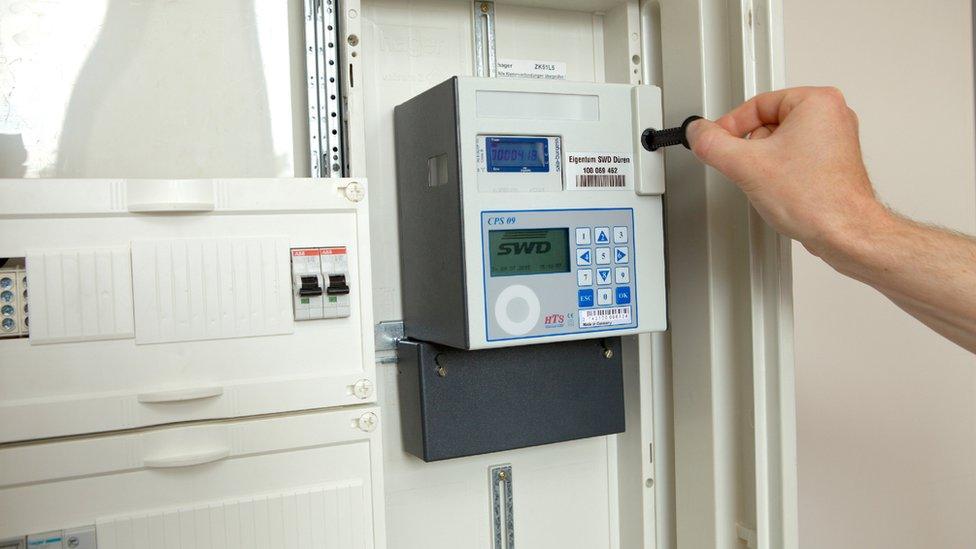Prepay meter installation fees should be capped, Ofgem says
- Published

About 4.5 million UK consumers top up prepayment meters with a key or card
Consumers who are forced to have prepayment energy meters put in should face a maximum installation fee of £150, the regulator has proposed.
Currently such energy users - already the most vulnerable to debt - face a charge of up to £900, said Ofgem.
As many as 4.5 million people use prepayment meters for electricity, while 3.5 million use them for gas.
Consumers who pay in advance also face higher energy bills, although from April 2017 these prices will be capped.
The proposal was welcomed by the charity Citizens Advice.
Charges
At the moment, energy suppliers must try to come to an agreement with consumers who fall into debt.
If that cannot be achieved, they can apply to a magistrates court for a warrant to install a prepayment meter.
If given permission to do so, they are allowed to charge for the cost of putting it in.
Such charges are typically £400, but can be as high as £900 when court costs are included.
However, some suppliers do not charge anything.

'Most vulnerable'
Ofgem is suggesting that the maximum fee should be between £100 and £150.
For particularly vulnerable consumers, such as those in financial hardship or those with health issues, it says there should be no charge at all.
"It's deeply unfair that struggling customers get hit with high warrant costs when they're already grappling with debt, doubly penalising them," said Rachel Fletcher, Ofgem's senior partner for consumers and competition.
"Where they are needed, our proposals will protect customers by limiting prepayment meter warrant charges for all customers and removing them for the most vulnerable."
Gillian Guy, the chief executive of Citizens Advice, welcomed the idea.
"Capping the warrant charges and ending them altogether for vulnerable customers will help to stop people being pushed further into debt when they are already struggling to manage their costs," she said.
The Competition and Markets Authority (CMA) has ordered a price cap on energy charges for prepayment customers from April 2017. The precise level of the cap has not yet been set, but such households are set to save £75 a year as a result.
The Ofgem consultation, external will last until 9 November 2016.